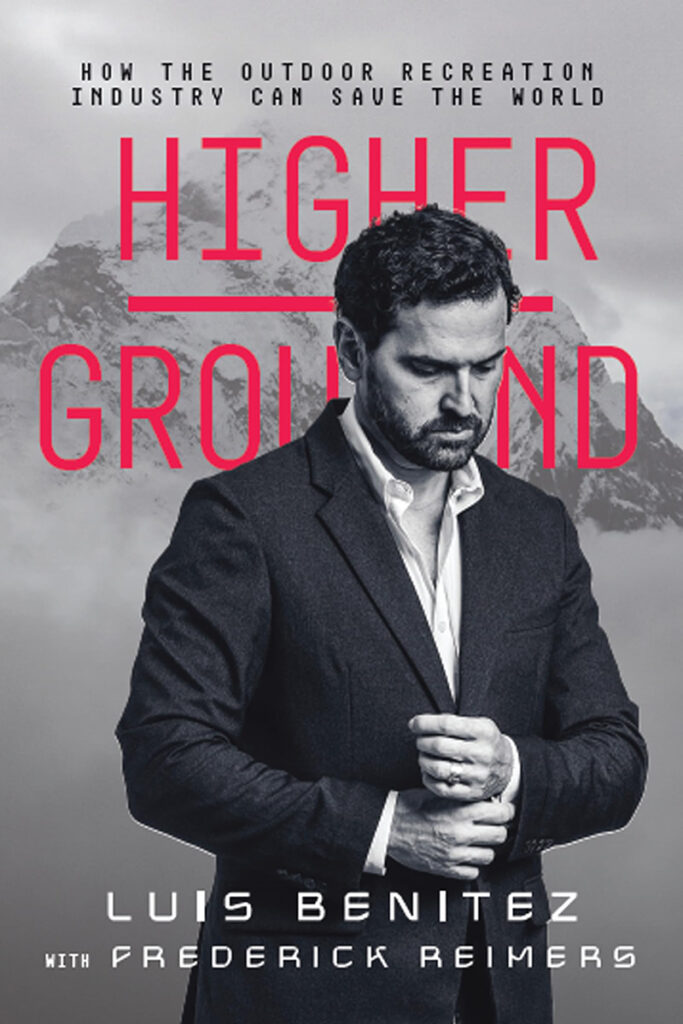By Jon Jonckers
Luis Benitez’s “Higher Ground: How the Outdoor Recreation Industry Can Save The World” is a compelling mixture of personal memoir and environmental advocacy, offering a unique perspective on the transformative power of outdoor recreation. Benitez, a renowned mountaineer and former outdoor policy official for Colorado, intertwines his life experiences with a persuasive argument for the outdoor industry’s potential to drive social changes.
As far back as the 1958 presidential panel known as the Outdoor Recreation Resources Review Commission, both Democrats and Republicans have been trying to estimate outdoor recreation’s role and value both socially and economically: “The demand is surging. Whatever the measuring . . . it is clear that Americans are seeking the outdoors as never before. And this is only a foretaste of what is to come. Not only will there be many more people, they will want to do more, and they will have more money and time to do it with,” Benitez writes.

Benitez’s narrative begins with his childhood asthma, a condition that confined him indoors and sparked a yearning for the outdoors. This early struggle set the stage for a life devoted to nature and adventure. His ascent from a Missouri high schooler discovering rock climbing to leading blind mountaineer Erik Weihenmayer to the summit of Mount Everest exemplifies his resilience and passion to keep moving forward.
Beyond personal stories, “Higher Ground” delves into the economic significance of the outdoor recreation industry. Benitez highlights that the sector contributes approximately $1.1 trillion and over 5 million jobs annually to the U.S. economy, surpassing the automotive and pharmaceutical industries combined. He argues that this economic clout positions the industry as a bipartisan force capable of uniting diverse communities and driving policy change. This book is not your typical policy paper—it’s a page-turner that resonates with a broad and active audience.













